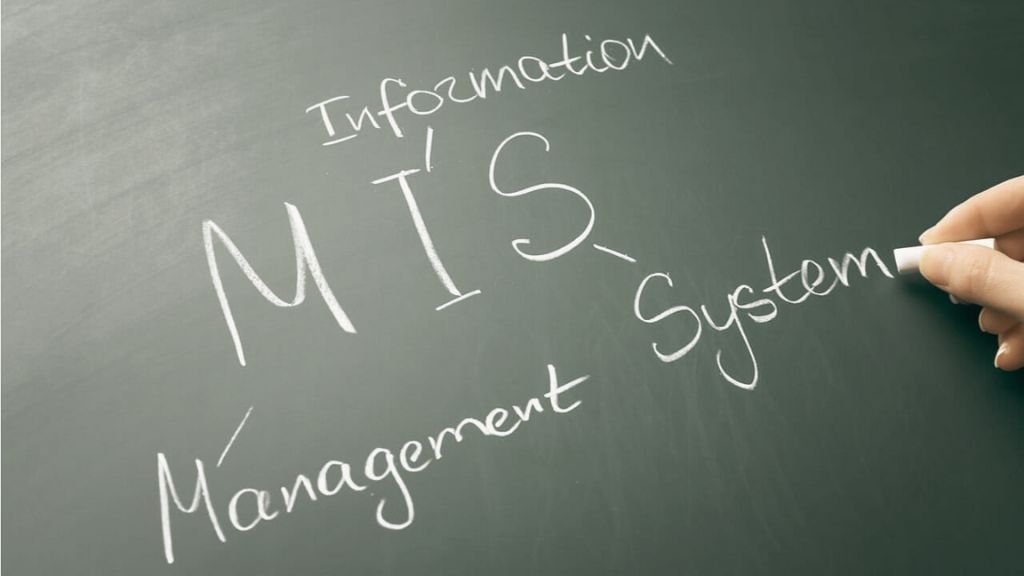A Management Information System (MIS) is a tool that helps people in businesses and organizations manage information easily. It is a system that gathers, organizes, and shows information in a way that helps managers make smart decisions. Think of it like a very smart computer program that takes all the data from a company, sorts it out, and shows it in a way that’s easy to understand. MIS is important because it helps businesses work better, faster, and smarter.
In this blog, we will look at 10 characteristics of management information system and why they matter for businesses and managers.
10 Characteristics of Management Information System
1. Easy to Use
One of the most important characteristics of a good MIS is that it should be easy to use. The people who work with it might not be experts in technology, so the system should be simple and clear. This way, everyone in the company, from the manager to the employee, can use it without much training. A good MIS has simple menus, buttons, and easy-to-read screens that help users find the information they need quickly.
2. Accurate Information
An effective MIS provides accurate information. This means that the data it shows is correct and up-to-date. Businesses rely on accurate information to make good decisions. For example, if a company wants to know how many products they sold last month, the MIS should show the exact number. Having correct information helps managers avoid mistakes and plan better for the future.
3. Fast and Timely
MIS should be able to provide information quickly. When managers need to make decisions, they often need the information right away. A good MIS works fast to collect and show data without any delay. It helps managers get what they need in just a few clicks. Timely information can be very important, especially when quick decisions are needed to solve problems or take advantage of new opportunities.
4. Helps in Decision-Making
One of the main jobs of an MIS is to help managers make smart decisions. The system organizes data in a way that makes it easy to understand. It might use charts, tables, or graphs to show information clearly. This makes it easier for managers to decide what to do next, whether it’s about hiring more people, buying more products, or starting a new project.
5. Stores Information Safely
A good MIS keeps all the company’s data safe and secure. Businesses have a lot of important information, like customer details, product prices, and sales records. The system needs to protect this information from getting lost or being seen by people who shouldn’t have access. Security features like passwords and encryption keep the information safe and private.
Also read: 10 Reasons Why Female Child is Important in the Family
6. Provides Reports and Summaries
MIS can create reports and summaries from all the data it collects. These reports are like snapshots of what’s happening in the company. They can show how well a company is doing, what products are selling best, or what needs to be improved. A good MIS can create different kinds of reports that help managers understand the business better.
7. Flexible and Can Grow with the Business
As a company grows, the MIS should be able to grow too. This means the system needs to be flexible and adaptable. A good MIS can add more data, handle more users, and include new features without any problems. This flexibility is important because businesses often change and the MIS should keep up with those changes without needing a whole new system.
8. Integrates with Other Systems
A good MIS should be able to work well with other systems the business uses. For example, if a company has a system for managing money and another for keeping track of sales, the MIS should be able to connect with both. This way, managers can see all the information they need in one place without switching between different systems.
9. Cost-Effective
An effective MIS should be cost-effective. This means it should provide good value for the money the company spends on it. A good MIS can save time, reduce mistakes, and help the business work better. Even though setting up an MIS might cost money at first, in the long run, it should help the company save money and work more efficiently.
10. User Support and Training
A good MIS often comes with support and training for users. Not everyone will know how to use the system right away, so it’s important that there are guides, help sections, or even training sessions available. This support makes it easier for everyone in the company to learn how to use the MIS, ask questions, and get help when they need it.
Conclusion
A Management Information System is an important tool for businesses. It helps managers make better decisions by providing accurate and timely information. A good MIS is easy to use, safe, and can grow with the company. It should also be flexible, integrate with other systems, and provide good value for money.
With the right MIS, companies can save time, reduce mistakes, and become more successful. That’s why understanding these characteristics is so important, because a well-chosen MIS can make a big difference for any business!

